As a teenager in Glasgow, Isabella Thurston was a self-proclaimed “rabid independent.”
As a 77-year-old living in Falmouth, however, she hopes to see the citizens of Scotland vote Thursday against separating from the United Kingdom.
“When you’re growing up, you hate the English. So, get rid of them,” she said about her mentality as a young adult. “When you get older and wiser, you go, ‘How in the world are they going to survive financially?’ ”
That question and others – such as what currency a newly independent Scotland would use, whether the Royal Navy’s nuclear submarines would be moved out of Scotland, and what would happen to North Sea oil and gas reserves – remain unanswered as Scottish voters decide Thursday whether to bring an end to the union with their neighbors to the south that has existed since 1707.
Several weeks ago, opponents of independence led in some polls by as much as 20 percentage points, but that gulf had all but disappeared by Wednesday.
A phone poll of 1,373 people by Ipsos MORI, released Wednesday, put opposition to independence at 51 percent and support at 49 percent, with 5 percent of voters undecided, The Associated Press reported. The results fall within the poll’s margin of error of plus or minus 3 percentage points.
As much as 90 percent of Scotland’s registered voters are expected to cast ballots.
Polls close at 10 p.m. in Scotland with results coming in the wee hours of the morning and a final tally scheduled to be announced at 7 a.m. Friday Scottish time, which is five hours ahead of the eastern U.S. The split, if approved, would take place in 2016.
In Maine, residents of Scottish descent – there are more per capita here than in any other state – say the idea of independence sounds romantic, but might not be practical. Many say it’s not their place to decide.
“I don’t feel like I have a right to an opinion on their future,” said Emily Smaha, who runs the Southern Maine School of Scottish Dance in Yarmouth.
Many of the dances that Smaha has been studying since she was 6 years old tell stories about Scotland fighting the British before it joined the United Kingdom.
“My whole life has been around independent Scotland,” said Smaha, 34. “I love the romantic notion.”
She’ll be watching closely to see what happens.
“I’m a little nervous,” she said. “If they do vote for independence, I really want it to work out for them.”
Ron Thurston, Isabella’s husband, doesn’t see that happening, considering that Scotland spends more tax money than it generates.
“I think they’re better off within the United Kingdom,” said Thurston, president of the St. Andrew’s Society of Maine, which promotes Scottish heritage and sponsors the annual Highland Games in Topsham.
Ian Marshall, a Glasgow native who’s known in the Harpswell area as the Scottish Handyman, said he has dual citizenship and normally gets to vote in elections, but only residents of Scotland get a say in this referendum.
“If I had a vote, I’d be voting no,” he said.
Marshall, who served in the Royal Air Force for 31 years, has concerns about the issue, ranging from how Scotland will pay for its defense to what happens when he has to renew his passport.
“The questions should have been asked and answered before the vote,” he said.
Those who support independence, Marshall said, are “voting with their heart rather than their brain.”
Douglas Campbell understands the sentiment.
“The romantic in me would love to see an independent Scotland, I suppose,” said the bagpipe player from Cape Elizabeth. But Campbell admitted he doesn’t really know what’s best for the country. If he got in a room with someone fiercely opposed to it, he said, “I wouldn’t have much of a counter argument.”
Campbell has many musician friends in Nova Scotia – New Scotland, in Latin – the Canadian province where 32 percent of residents are of Scottish descent and Gaelic culture thrives. He said they’ve been posting their support for independence on their Facebook pages.
“Most of them spend time in Scotland, have friends in Scotland and all of them, I think, unanimously are for the yes vote,” Campbell said.
The per-capita population of Scottish descendants in Maine, at 3.34 percent, has nothing on Nova Scotia, but is still the highest in the U.S., followed by Vermont at 2.66 percent and New Hampshire at 2.65 percent, according to U.S. Census data.
After northern New England, Utah and Wyoming have the most Scottish descendants per capita. Hawaii and Wisconsin have the least.
Tiffany Link, reference librarian at the Maine Historical Society, speculated that Maine’s relative proximity to Europe and Canada, where immigrants often settled first because it was cheaper before moving south, are factors in the high percentage of Scottish descendants in northern New England and eastern Canada.
Dick Piper’s ancestors came over from Scotland three generations ago, though he’s not sure exactly from where.
Although he’s interested in his heritage, that’s not why he started raising Scottish Highland cattle in Buckfield. He simply liked the taste better than other beef.
Whether or not it’s in his blood, he’s hands-off when it comes to offering an opinion on Scottish politics.
“I don’t live over there, so I think it’s really up to them,” he said.
Copy the Story LinkSend questions/comments to the editors.


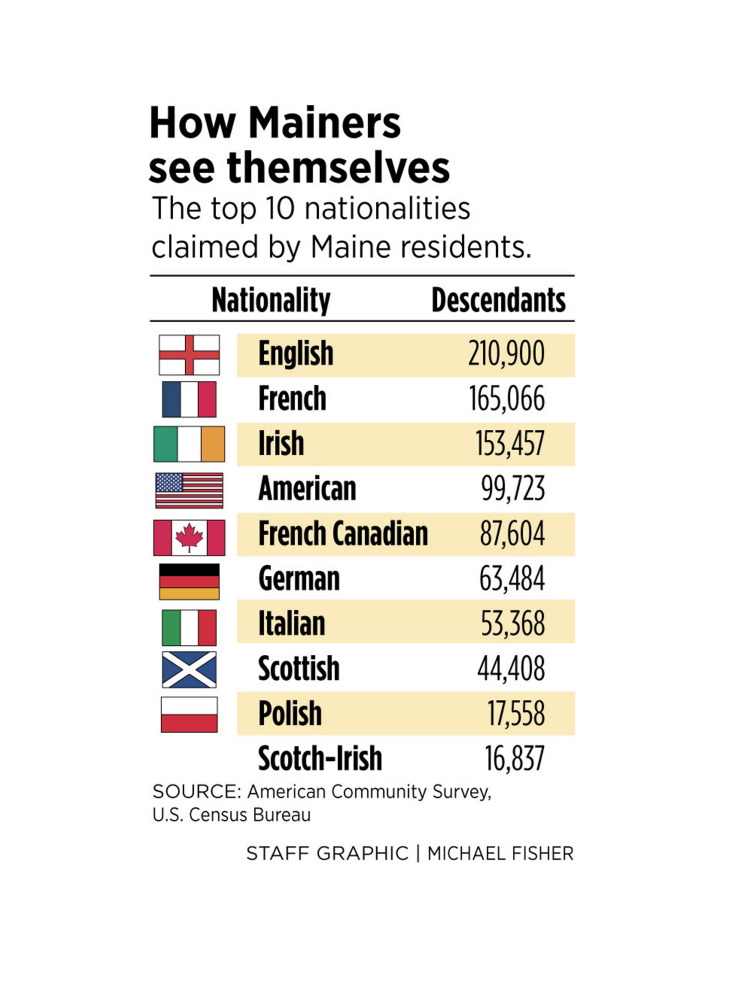
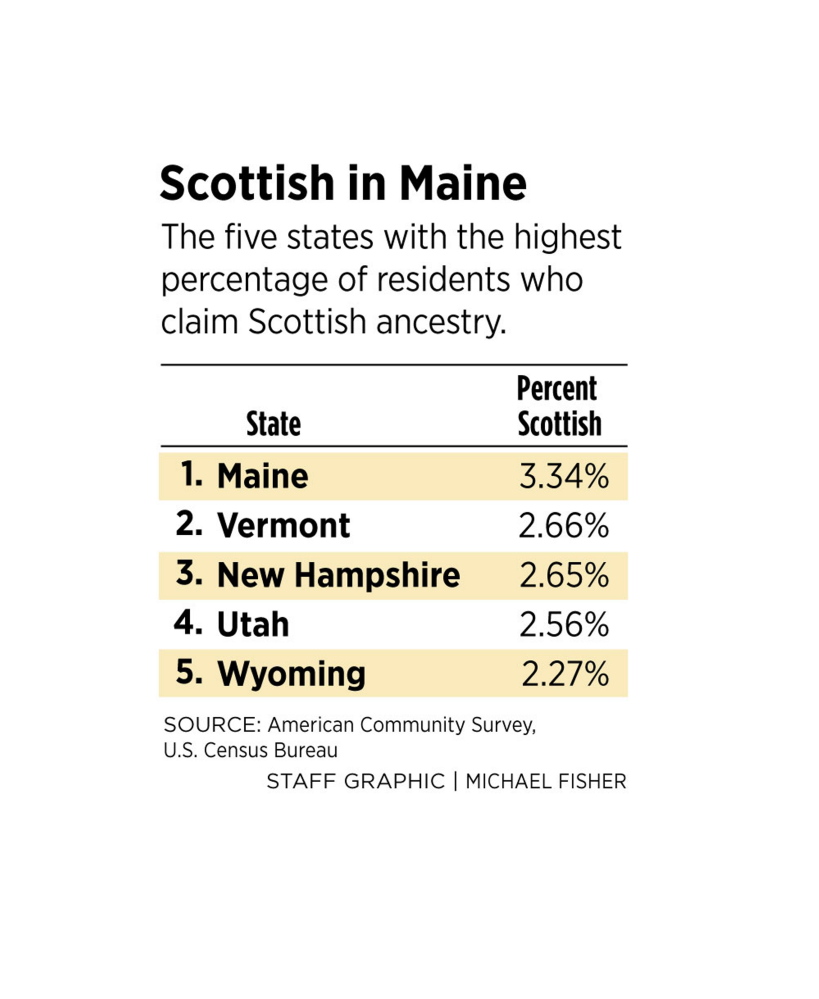
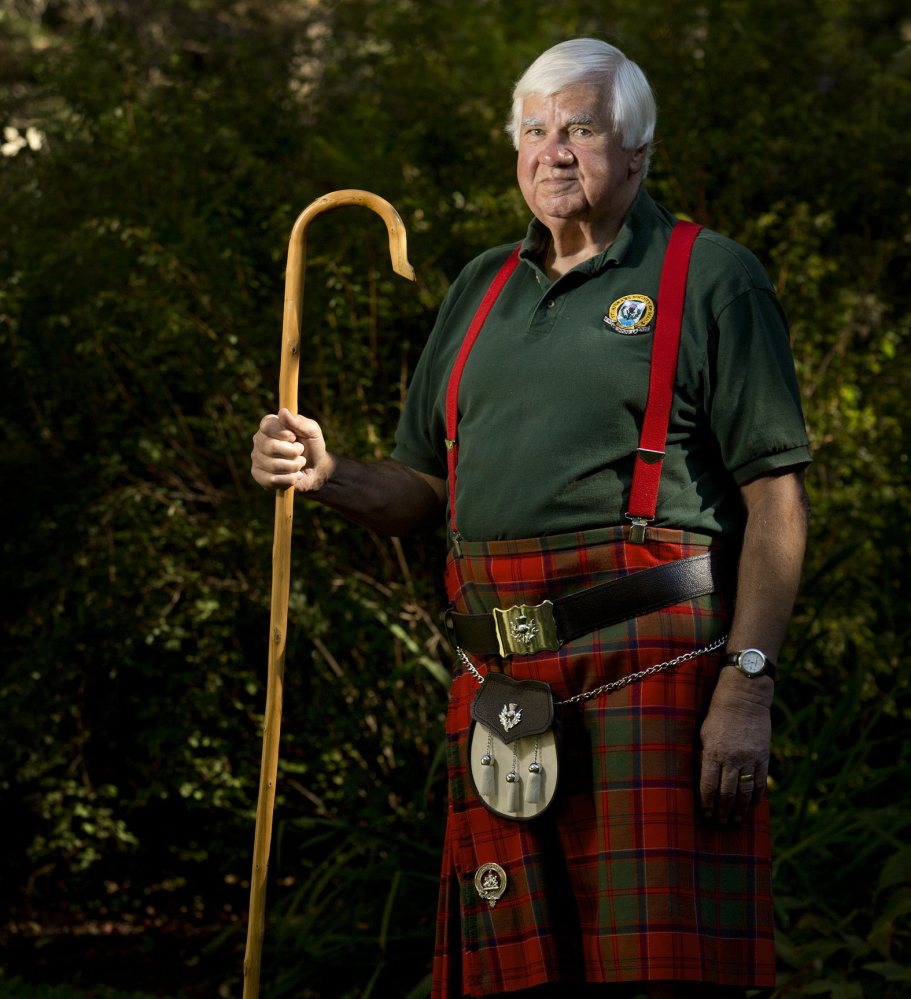
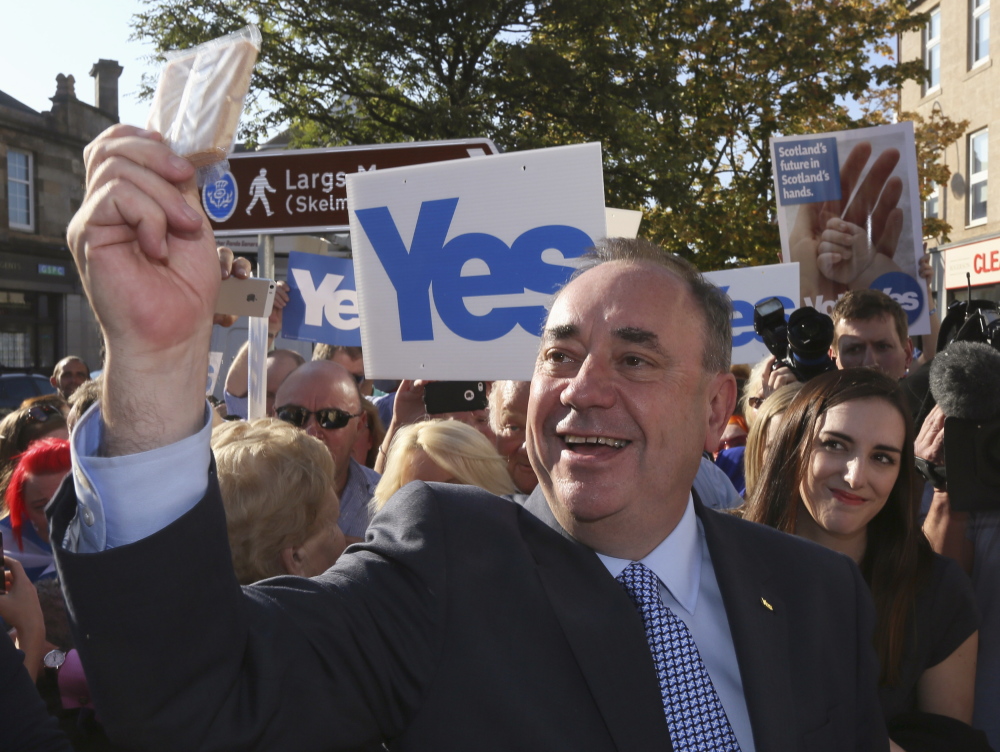
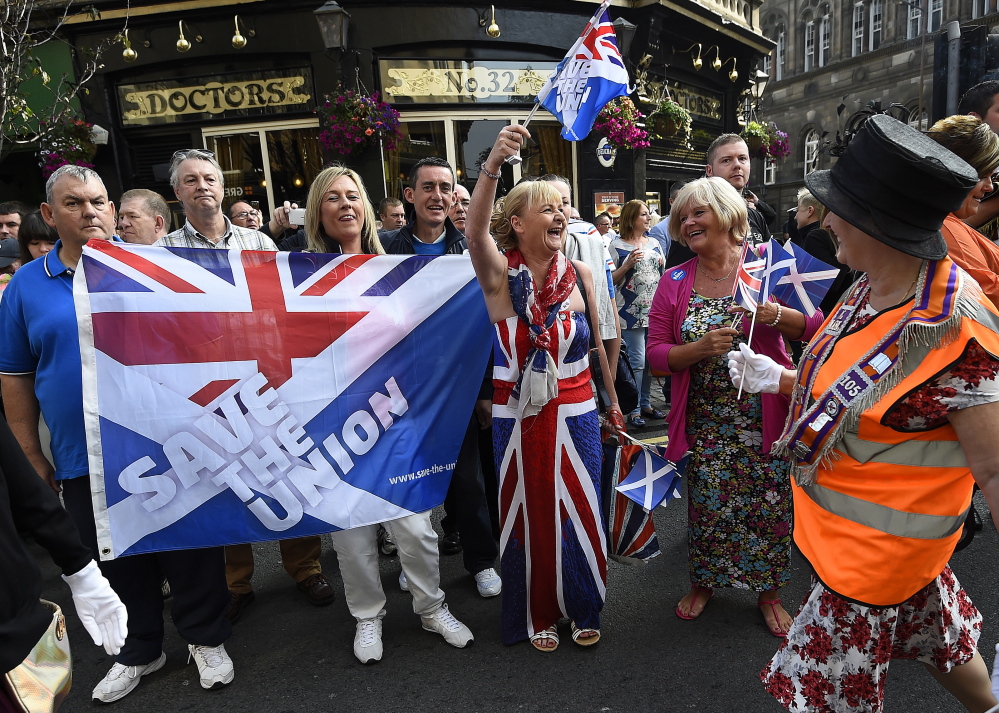

Success. Please wait for the page to reload. If the page does not reload within 5 seconds, please refresh the page.
Enter your email and password to access comments.
Hi, to comment on stories you must . This profile is in addition to your subscription and website login.
Already have a commenting profile? .
Invalid username/password.
Please check your email to confirm and complete your registration.
Only subscribers are eligible to post comments. Please subscribe or login first for digital access. Here’s why.
Use the form below to reset your password. When you've submitted your account email, we will send an email with a reset code.